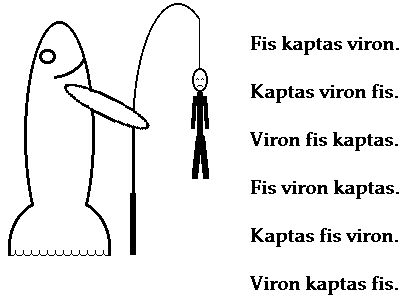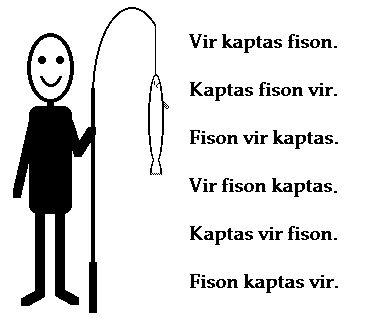Esperanto
Esperanto is an artificial language created by humans. Its creators were people
interested in world government who believed that having a worldwide
common language was a prerequisite for such a government. Since its
creation, Esperanto has not fulfilled the dreams of its creators.
Although Esperanto societies exist to promote its proliferation, it
lacks the vitality of a natural language. Here, however, Esperanto
will serve nicely as an example of a word ending syntax language.
Look at the pictures and text below, and see if you can figure out
the meanings.
The examples illustrate WORD ENDING SYNTAX.

The fish caught a man.
All of the sentences above are possible, and have the same
meaning. Now, look below.

The man caught a fish.
For speakers of English, a word-ending syntax language seems
strange. What is more, speakers of such languages must know how to
decline nouns rather than use words like "to," "from," "by," and
"of." In the examples above, "vir" and "fis" designate the nominative
case, or the noun as subject. Similarly, "viron" and "fison"
designate the accusative case, or the noun as object.
Back to Introduction